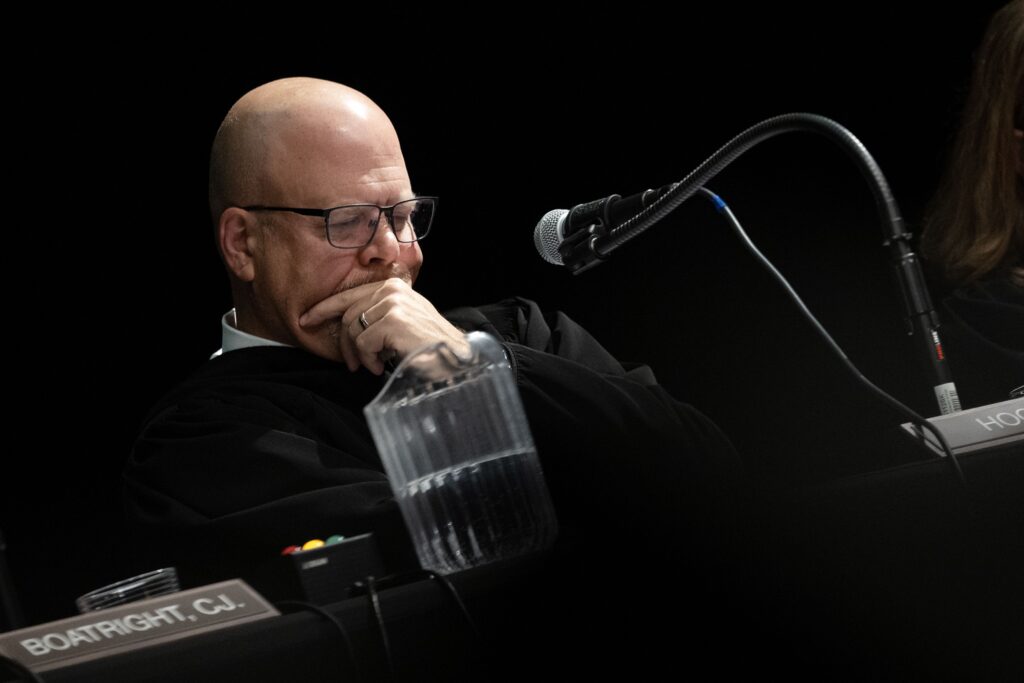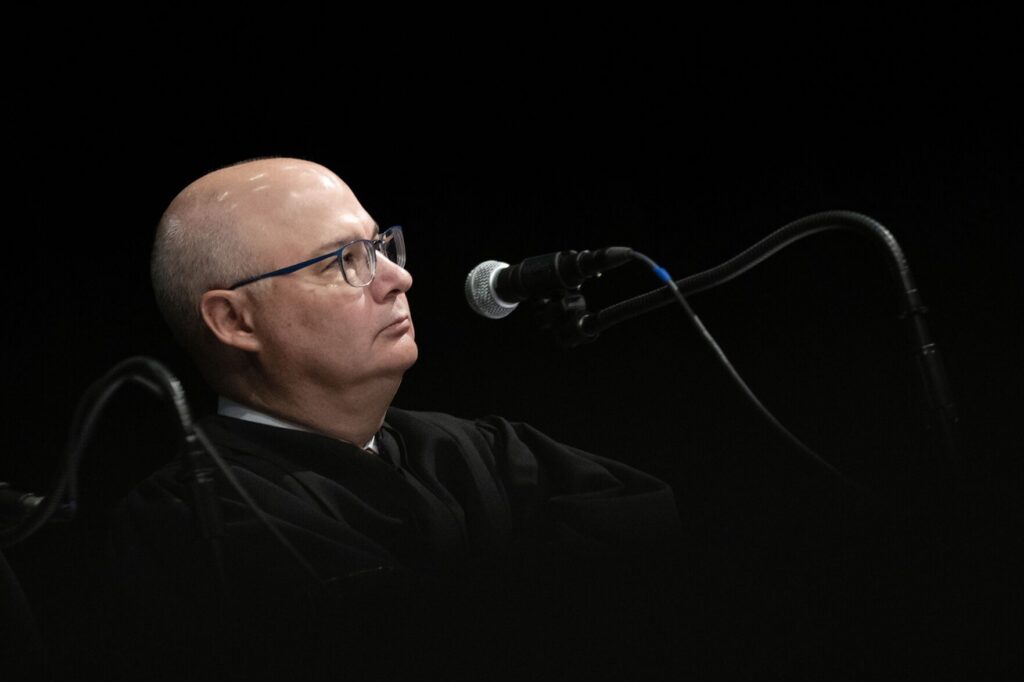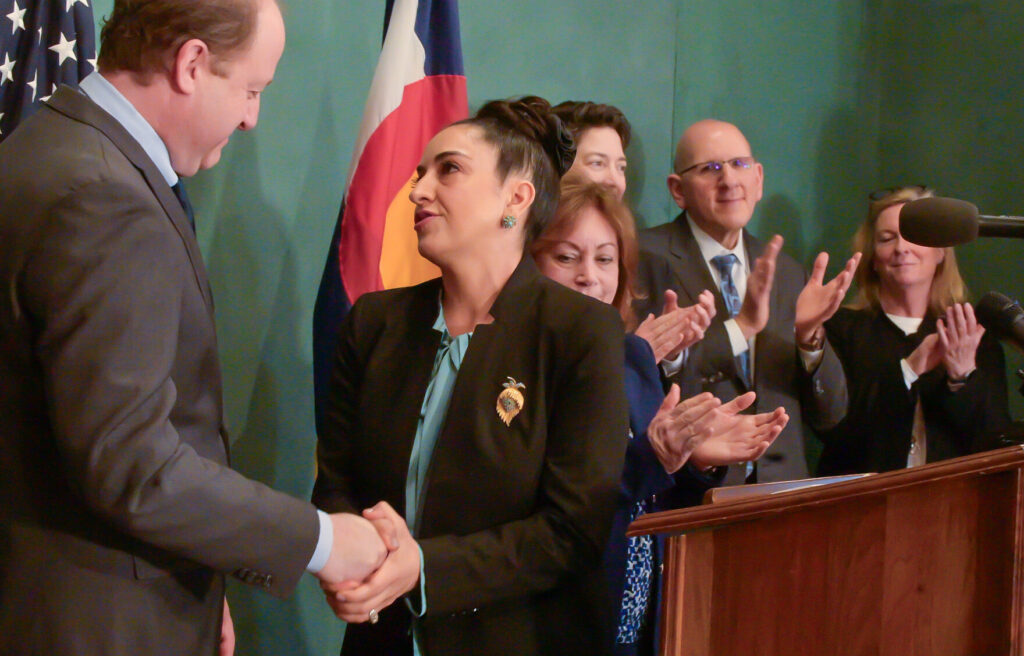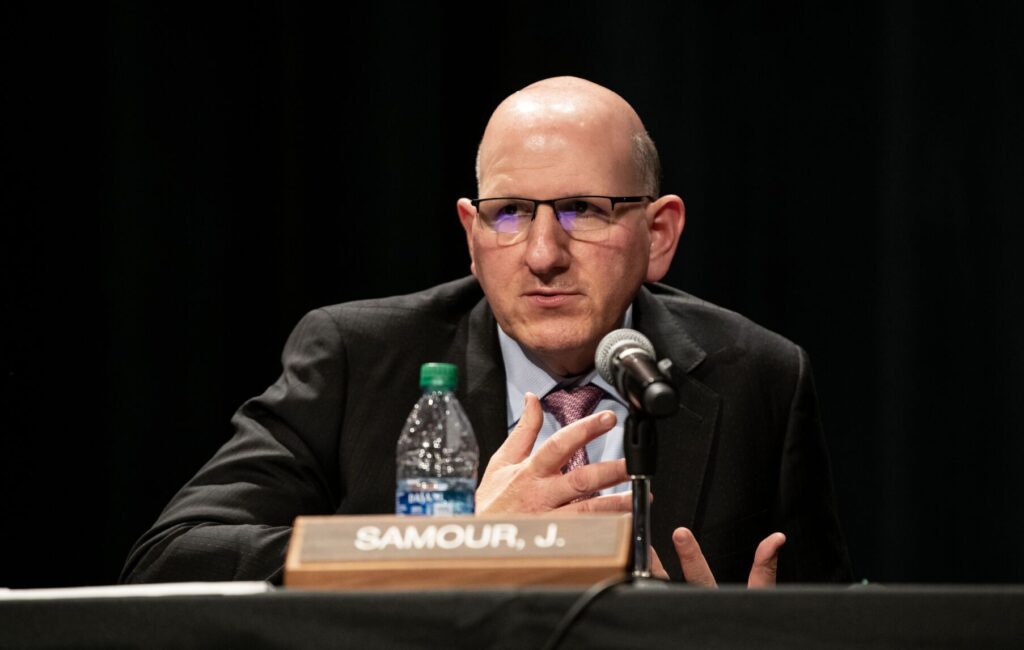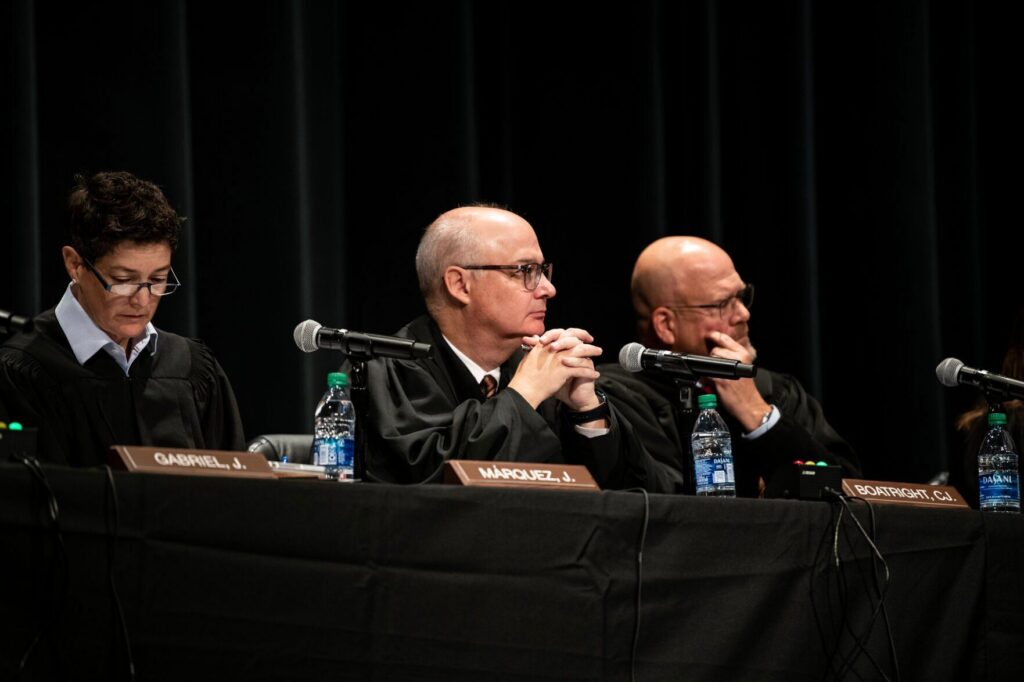Federal judge eases path for plaintiffs to hold Denver liable for 2020 protest response
A federal judge last month reversed course on her previous decision and ruled a group of one dozen plaintiffs who were injured during the police response to Denver protests can hold the city liable for failing to train its officers on the use of chemical weapons and projectiles.
Last March, U.S. District Court Judge Nina Y. Wang concluded a jury should decide whether the use of force against peaceful protesters in 2020 was excessive, whether it was a reaction to First Amendment-protected activity and whether Denver’s own policies motivated officers. However, she removed certain pieces of the plaintiffs’ claims, reasoning there was insufficient evidence to justify a trial.
In part, Wang found the plaintiffs had not plausibly established Denver was on notice of deficiencies in its training and, through its indifference, caused a constitutional violation. Therefore, she took that theory off the table for trial. Several months later, she rejected the plaintiffs’ request to revisit her decision.
However, in late August, U.S. District Court Senior Judge R. Brooke Jackson entered the final judgment in a similar case involving a different group of protesters. That case, Epps v. City and County of Denver, went to a trial in 2022. A jury awarded the plaintiffs nearly $14 million.

Elisabeth Epps (left) talks about her relief that a jury found a Denver police officer violated her constitutional protection against excessive force by shooting at her with a pepper ball during the 2020 George Floyd protests. To her right is one of her attorneys, Tim Macdonald.
Jackson had held off on closing the case while the parties settled other claims. After the final order, the plaintiffs’ attorneys for Wang’s case notified her the Epps jury had, in fact, found Denver liable for failing to train its officers, resulting in constitutional violations.
“Thus, the identical issue was necessarily adjudicated on the merits against Denver,” wrote the attorneys, contending Denver should not be allowed to dispute its failure to train at trial.
In a short response, the city advanced one argument: Wang already eliminated the failure-to-train theory from the case. As such, it was no longer in play.
Not so fast, Wang said.

Nominee to be United States District Judge for the District of Colorado Nina Nin-Yuen Wang, testifies before the U.S. Senate Judiciary Committee during her confirmation hearing on Capitol Hill in Washington U.S., May 25, 2022.
She acknowledged she previously discarded that portion of the plaintiffs’ claims against Denver, but the latest development occurred after her original decision. Under the principle of “issue preclusion,” parties cannot relitigate issues that have already been decided, so long as there was a fair opportunity to litigate and the issue is identical.
Because the failure-to-train question in the Epps case was the same as in the case before Wang, she decided in a Dec. 2 order that the jury’s verdict against the city meant Denver could be held liable on those grounds after all.
In reversing course, Wang did not believe she was being unfair to the city. Her original order was not final, she wrote, and it was based on how the plaintiffs argued their claims, “not necessarily a lack of supportive evidence.”
The existing jury verdict means “Plaintiffs will not be required to prove at trial (a) a failure to train with respect to crowd management or the use of less-lethal weapons or (b) that Denver was deliberately indifferent to this lack of training,” she concluded. “Plaintiffs will still be required to prove (c) that each individual Plaintiff’s constitutional rights were violated by Denver officers; and (d) Denver’s conduct caused the violation of each individual Plaintiff’s constitutional rights.”
A jury trial is scheduled for February.
The lawsuit is one of several that have asserted Denver police and neighboring law enforcement agencies violated the constitutional rights of protesters in late May and early June 2020. After bystander video captured Minneapolis police Officer Derek Chauvin murdering George Floyd by kneeling on Floyd’s neck for nine minutes, demonstrations erupted internationally, including in Denver.
In addition to the $14 million verdict in the Epps case, the city has also approved millions of dollars in settlements stemming from its arrests of protesters for violating an overnight curfew and the use of crowd control tactics allegedly without warning.
The case is Cousik et al. v. City and County of Denver et al.


